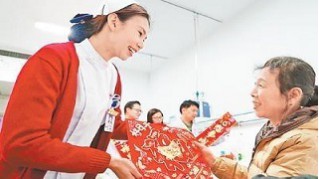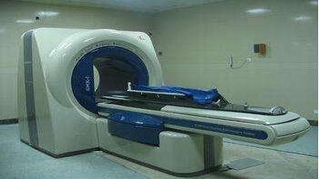目的:對(duì)炎性疾病中使用生物制劑的免疫原性及其對(duì)藥物療效/安全性的潛在影響進(jìn)行系統(tǒng)評(píng)價(jià),。
方法:于2016年11月進(jìn)行文獻(xiàn)檢索,確定生物制劑/生物仿制藥治療類風(fēng)濕關(guān)節(jié)炎,,銀屑病關(guān)節(jié)炎,,幼年特發(fā)性關(guān)節(jié)炎,強(qiáng)直性脊柱炎,,影像學(xué)陰性的中軸性脊柱關(guān)節(jié)炎,,銀屑病,克羅恩病,,和潰瘍性結(jié)腸炎的對(duì)照性和觀察性研究,。
結(jié)果:在>21,000篇文獻(xiàn)中,共納入443篇文獻(xiàn)??顾幙贵w(ADAb)的陽性率在不同疾病應(yīng)用生物制劑治療患者中的差異較大(由于免疫分析方法的異質(zhì)性較大,,無法直接進(jìn)行比較);ADAb陽性率最高的是英夫利昔單抗(0-83%),,阿達(dá)木單抗(0-54%),,英夫利昔單抗生物仿制藥CT-P13 (21-52%),最低的是secukinumab (0-1%),,ustekinumab (1-11%),,依那西普(0-13%), 和格利木單抗(0-19%)。除針對(duì)阿巴昔普和依那西普的ADAb之外,,大部分ADAbs 是中和性抗體,。與ADAb陰性的患者相比,ADAb陽性的患者對(duì)阿達(dá)木單抗(RA, PsA, JIA, AS, Ps), 格利木單抗 (RA), 英夫利昔單抗(RA, PsA, AS, Ps), 利妥昔單抗 (RA), ustekinumab (Ps),,和CT-P13 (RA, AS)的臨床反應(yīng)率更低,。英夫利昔單抗 CT-P13治療后ADAb陽性的患者輸液相關(guān)反應(yīng)更高。免疫抑制劑/抗增殖藥物的使用可以減少各種疾病應(yīng)用生物制劑的免疫原性,。
結(jié)論:基于文獻(xiàn)報(bào)道結(jié)果,,不同的生物制劑/生物仿制藥的免疫原性差異較大,英夫利昔單抗和阿達(dá)木單抗的ADAb陽性率最高,。生物制劑/生物仿制藥治療患者ADAb的產(chǎn)生可能會(huì)增加藥物療效不佳的風(fēng)險(xiǎn),,在制定治療方案的過程中要考慮到這些藥物的免疫原性。
附原文:
OBJECTIVE: A systematic review was conducted to explore the immunogenicity of biologic agents across inflammatory diseases and its potential impact on efficacy/safety.
METHODS: Literature searches were conducted through November 2016 to identify controlled and observational studies of biologics/biosimilars administered for treatment of rheumatoid arthritis (RA), psoriatic arthritis (PsA), juvenile idiopathic arthritis (JIA), ankylosing spondylitis (AS), non-radiographic axial spondyloarthritis (nr-axSpA), psoriasis (Ps), Crohn's disease, and ulcerative colitis.
RESULTS: Of >21,000 screened publications, 443 were included. Anti-drug antibody (ADAb) rates varied widely among biologics across diseases (and are not directly comparable because of immunoassay heterogeneity); the highest overall rates were reported with infliximab (0-83%), adalimumab (0-54%), and infliximab biosimilar CT-P13 (21-52%), and the lowest with secukinumab (0-1%), ustekinumab (1-11%), etanercept (0-13%), and golimumab (0-19%). Most ADAbs were neutralizing, except those to abatacept and etanercept. ADAb+ versus ADAb- patients had lower rates of clinical response to adalimumab (RA, PsA, JIA, AS, Ps), golimumab (RA), infliximab (RA, PsA, AS, Ps), rituximab (RA), ustekinumab (Ps), and CT-P13 (RA, AS). Higher rates of infusion-related reactions were reported in infliximab- and CT-P13-treated ADAb+ patients. Background immunosuppressives/anti-proliferatives reduced biologic immunogenicity across diseases.
CONCLUSION: based on reviewed reports, biologic/biosimilar immunogenicity differs among agents, with the highest rates observed with infliximab and adalimumab. As ADAb formation in biologic-/biosimilar-treated patients may increase the risk of lost response, the immunogenicity of these agents is an important (albeit not the only) consideration in the treatment decision-making process.
引自:
Strand V, Balsa A, Al-Saleh J, et al. Immunogenicity of Biologics in ChronicInflammatory Diseases: A Systematic Review. BioDrugs. 2017 Jun 13. doi: 10.1007/s40259-017-0231-8.[Epub ahead of print]







